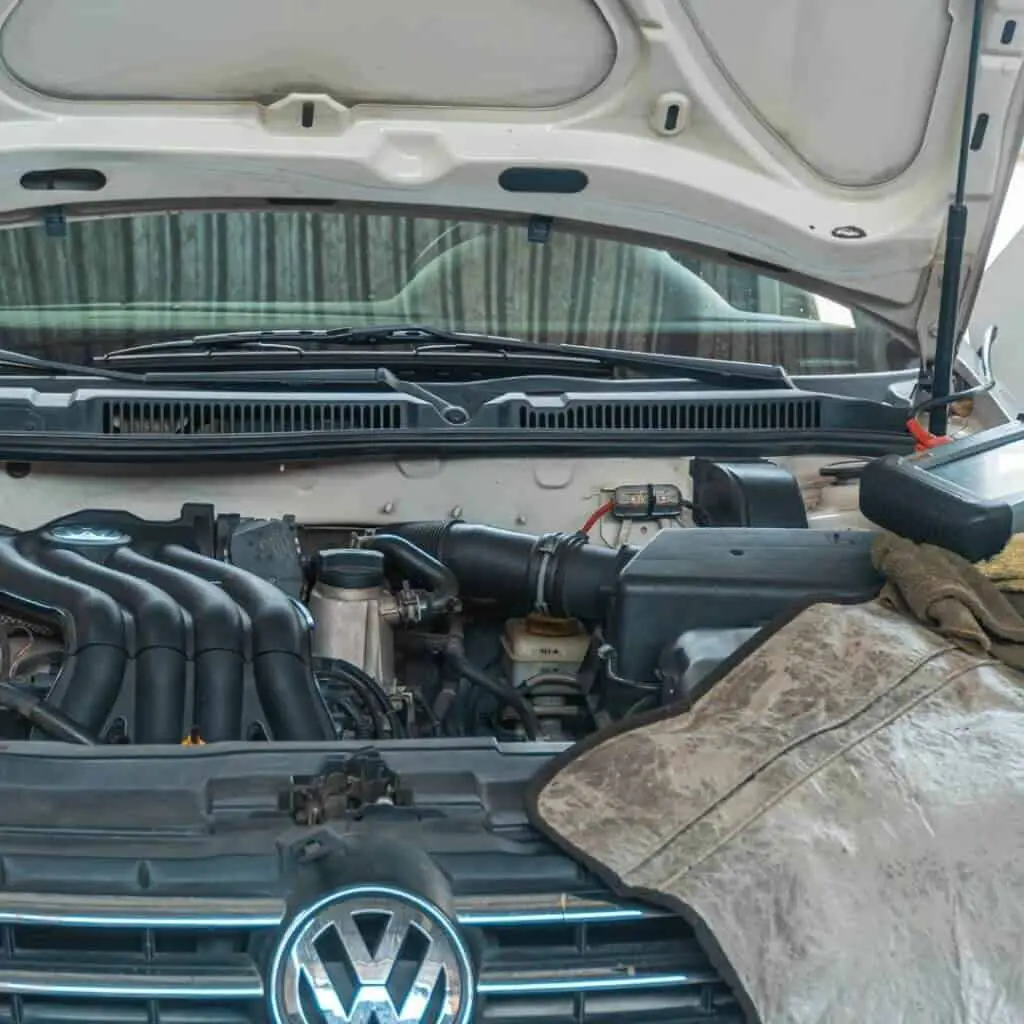Are you familiar with the Vauxhall Mokka problems?
The Mokka may sound like something you order out of a coffee shop but in reality, it’s Vauxhall’s answer to Nissan’s Juke And Qashqai models which have taken a huge slice of this increasingly lucrative market.
The Vauxhall Mokka is a super stylish crossover SUV with a well-equipped interior. The Mokka comes with many features from safety, to entertainment and connectivity, to styling, and comfort.
The Vauxhall Mokka makes for an excellent choice if you’re after a small and stylish family car that will not be mistaken for an average boxy crossover in the school car park.
But with all these great features, the Mokka isn’t as practical as some of the drabber-looking alternatives. There are several glitches with the Vauxhall Mokka that stop it from being a perfect choice. In this article, we’ll be looking at the most common Vauxhall Mokka problems and a few possible solutions for them.
Most Common Vauxhall Mokka Problems
![]()
- Air-conditioning System Problems
On a hot day, I’m afraid that the Mokka may not really provide you the cool air-conditioning that you really need. Instead, the conditioning system may give you tepid air on a hot summer day.
The problem is usually a faulty air-conditioning condenser which leaks and lets out the refrigerant. Other causes include dirty air cabin filter, dirty or clogged evaporator, bad blower motor, faulty blend door actuator, and compressor failure.
Insufficient amount of refrigerant still remains the main cause of a malfunctioning air-conditioning system. Ideally, a refrigerant should never leak in a properly sealed AC system but the Mokka AC system may leak small amounts of refrigerant over time due to minor manufacturing imperfections. Most of these leaks are due to a defective sealing ring, a worn line, or a faulty condenser. [1]
Finding the larger leaks is way easier because they can be heard or found using a leak detection spray. Finding small leaks is tricky and the system will have to be filled with forming gas(nitrogen and a little hydrogen) in the workshop.
The pollen filter also known as the cabin filter is a vital component of the ventilation system of your Mokka and a dirty filter will cause reduced ventilation of the interior leading to reduced cooling, heating, and airflow.
To fix this you will ultimately need to change your filters and manufacturers recommend doing that at 10 000-20 000 miles. But you could always try cleaning the filter first, but you won’t be able to get to all the deep layers of the filter even if you use a vacuum cleaner. To locate the air filter, use the help of the car’s user manual.
- Leakage of Engine Fluids
Poorly threaded bolt holes on the flywheel or threaded holes clogged with dirt or debris will not create an adequate seal and this can cause oil to leak through onto the flywheel. This oil leak can be pretty bad as lots of smoke can come out of the engine and the exhaust.
Regardless of whether your first generation Mokka has a manual gearbox or an automatic transmission, you may still end up with a puddle of oil under it.
The cause of this problem is usually poorly tapped holes for the flywheel/drive plate. You can fix this at home but it is actually a long winded process.
First, you’ll need to identify the source of the leaking oil. As far as engine oil is concerned the fluid will be quite viscous and in shades ranging from brown to black but gearbox oil will be in amber tones and have a rather unpleasant smell. If the oil leak comes from the oil filter, you’ll only have to replace it. [2]
If the oil leakage is from the drain plug, you’ll have to remove the drain plug, drain the engine oil, change the drain gasket and tighten the plug to the appropriate torque.
You may also need to remove the flywheel/driveplate, clean everything up and then put them all back together with new bolts. Don’t forget to apply thread-locking compound to the bolt.
- Water Pump Failure
A Mokka’s water pump is located in the engine bay and it’s usually powered from the engine drive belt. This is the component responsible for circulating engine coolants(also known as antifreeze) around the cooling system.
If you notice patches or puddles of bright green or orange fluid on the floor beneath your engine after it has been parked for a few hours, it is most likely a leaking water pump. [3]
It is very important for this pump to function properly, because any malfunction could lead to your engine overheating. An overheated engine can quickly lead to engine failure, a costly consequence.
The most obvious sign of this problem is an engine temperature light coming on or an elevated engine temperature reading on the dashboard. Steam billowing from the front of your vehicle and unusual engine noises could also be signs of an overheated engine.
Water pumps are better replaced before they fail and it’s advisable to do that between 60 000- 90 000 miles of operation.
- Brake Problems
Vauxhall has recalled a number of vehicles over concerns about faulty braking. In cold weather, the brake pedal sticks down after use following about one hour of driving. In the hot weather, the brake gets stuck down at all times and this makes for dangerous driving. [4]
The brake lights may still be on even after the car has been parked due to the pedal not fully returning. The problem is probably is due to heat expansion within the pedal box
The rear brakes can also become seized against the brake caliper. Your Mokka may no longer feel as perky as before or you may notice an odd burning smell coming from the rear end, these are most likely signs that your brakes have seized.
To fix this, you will need to raise each rear corner-safely, remove the wheel and the caliper guides and lubricate them thoroughly. After that, go ahead and fit in a new set of brake pads.
The rear end of the Mokka can also develop a vibration problem caused by a faulty rear caliper vibration damper. If after fixing the brake pads, you still notice a vibration when you press down on the brakes or there’s a rumbling noise when you reverse your car, it’s possible that one of your rear brake vibration calipers is faulty.
Vauxhall Mokka Recalls
Vauxhall Mokka has issued recalls for the following problems:
- When the atmospheric temperature is below three degrees, the front windscreen wiper may stop working when the vehicle stops moving. It usually starts working again after the vehicle has been driven for more than 10km/h (during the same driving cycle) or during the next driving cycle after the vehicle has been restarted. The Mokka vehicles affected by this recall were manufactured between 16thFebruary and 23rd July 2021.
- A faulty steering column torque sensor led to the recall of affected vehicles manufactured in 2015.
- The seat belt tensioners of the front seat can fail to correct properly after release and loosen under the weight of the passenger. The recall affected vehicles built between 2013 and 2014.
- Due to insufficient instruction, the Flexfit carrier system is not positioned correctly by drivers when not in use. This may cause some of the rear lights to fail, increasing the chances of an accident occurring. This recall concerns affected vehicles manufactured between 2011-2016
- The bolting of the control arm may be faulty and could result in the loss of driving stability. The Mokka models affected were those manufactured between 11th and 24th February 2021.
- Due to a loose bolt, there were incidents of the steering wheel detaching in a small batch of cars built in December 2019. This led to the recall of the affected cars. [5]
Read Also: VW Touran Problems
Final Thoughts
The Vauxhall Mokka is designed to take advantage of the current trend of small SUVs. Some of the Vauxhall Mokka problems include, water pump failure, engine oil leaks, brake problems and air-conditioning problems.
But despite all these, the Mokka is reasonably efficient on paper and comes close to the expected efficiency in real life use by providing the small SUV driving experience that many people desire and this is probably one of the biggest selling points for this car.
Read Also: VW Eos Problems




